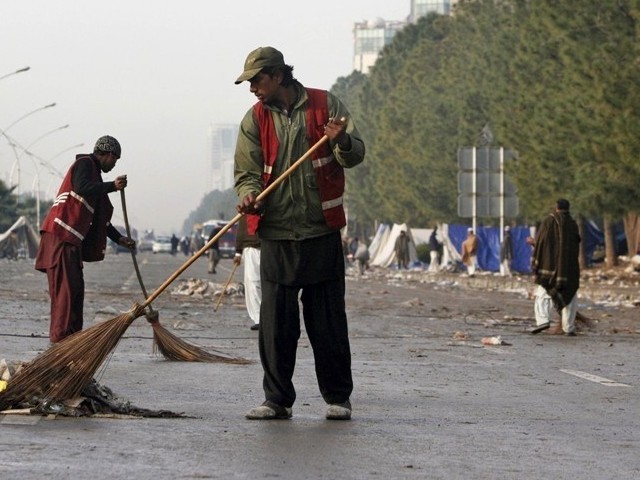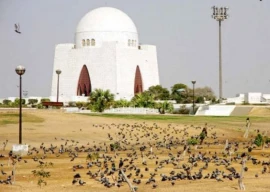
This was stated by Minister for Climate Change Zahid Hamid while addressing the inaugural session of the third Pakistan Conference on Sanitation (PACOSAN) in Islamabad on Wednesday. The two-day conference had been organised by the Ministry of Climate change with the help of its partners including the USAID, UNICEF, WHO, UN-Habitat, NRSP, Plan International, Oxfam, RSPN, Muslim Aid, WSSCC, ACF, COMSATS.
He spoke about how sanitation is a basic human right, which must be provided to every human being. Poor hygiene and sanitation not adversely impacts our health but also lead to multiple socio-economic and environmental problems especially contamination of water resources.
Hamid added that in September 2015, Pakistan, along with 190 countries had committed the targets set in the sustainable goals, with a special focus on goal 6 –ensuring the availability and sustainable management of water and sanitation for all.
According to UNICEF and WHO’s Global Joint Monitoring Programme Report of 2015, he said that 64 per cent of Pakistan’s population had access to improved sanitation and the country was ranked second in South Asia with a very high under-five-mortality rate of 72 per 1,000 children.
“The National Sanitation Policy of 2006, and the National Drinking Policy of 2009 are being reviewed by the planning ministry to align them with the SDGs, and a SDGs monitoring and coordination unit has been established on a national level,” he said.
The minister said that they were providing technical support to provincial governments and departments to meet provisional targets.
Hamid noted how the on-going census in also had two specific and detailed questions relating to water and sanitation.
“We will soon have accurate and up to date data on water and sanitation facilities for each Pakistani,” he said.
He added that they planned to establish a WASH cell at the ministry to coordinate with all key stakeholders, which would also play a role in organising the next South East Conference on Sanitation, to be held in Pakistan.
Hamid said that the ministry had developed an approach towards total sanitation which seeks to establish and sustain an open defection free environment both in rural and urban areas.
“There are 25 million cases annually of people suffering from diarrhoea. More than 300 children die every day due to poor sanitation and hygiene services,” he said.
Federal Minister for Education Balighur Rehman said improved sanitation and water required educating the public, for which they had begun an inter-provincial conference after the 18th amendment.
He compared the education sector statistics of 2012-2013 with 2015-2016 and said the number of government schools having toilets had risen by eight per cent.
UNICEF representative Angela Kearney said that Pakistan was making efforts to achieve its water and sanitation targets in Pakistan.
World Bank coordinator in Pakistan Sami Farhan mentioned that governments allocate huge budgets for health and education, but very little money for sanitation.
1731570357-0/elon-musk-(1)1731570357-0-405x300.webp)
-(1)1717678110-0/Kendrick-(1)-(1)1717678110-0-165x106.webp)






1732428532-0/BeFunk_§_]__-(43)1732428532-0.jpg)








COMMENTS
Comments are moderated and generally will be posted if they are on-topic and not abusive.
For more information, please see our Comments FAQ